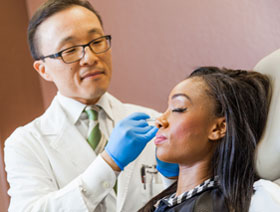 In today’s fast-paced world, stress has become an inevitable part of our daily lives. Whether it’s due to work pressures, personal relationships, or other life challenges, the effects of stress can manifest in various ways, including on our skin. Indeed, stress doesn’t just take a toll on our mental well-being; it can also significantly impact the health and appearance of our skin. Understanding how stress affects the skin and adopting effective strategies for stress management are essential steps towards maintaining healthy, radiant skin.
In today’s fast-paced world, stress has become an inevitable part of our daily lives. Whether it’s due to work pressures, personal relationships, or other life challenges, the effects of stress can manifest in various ways, including on our skin. Indeed, stress doesn’t just take a toll on our mental well-being; it can also significantly impact the health and appearance of our skin. Understanding how stress affects the skin and adopting effective strategies for stress management are essential steps towards maintaining healthy, radiant skin.
How Stress Affects Your Skin
When we experience stress, our body releases hormones like cortisol and adrenaline, which trigger the body’s “fight or flight” response. While this response is crucial for survival in threatening situations, chronic stress can disrupt the delicate balance of hormones in the body, leading to a range of adverse effects on the skin.
One of the most common ways stress affects the skin is by exacerbating existing skin conditions or triggering new ones. Conditions such as acne, eczema, psoriasis, and rosacea have been linked to stress, with many individuals noticing flare-ups during times of heightened stress. This occurs because stress hormones can increase inflammation in the body, making skin conditions more pronounced and harder to manage.
Furthermore, stress can disrupt the skin’s natural barrier function, leading to increased sensitivity and a compromised ability to retain moisture. This can result in dryness, redness, and irritation, making the skin appear dull and lackluster. Additionally, stress-induced changes in hormone levels can stimulate the production of excess oil in the skin, contributing to clogged pores and acne breakouts.
Stress Management and Skin Health
- Practice Stress-Relief Techniques: Incorporate relaxation techniques such as deep breathing, meditation, yoga, or mindfulness into your daily routine. These practices can help calm the mind, reduce cortisol levels, and alleviate stress-related symptoms.
- Prioritize Self-Care: Make time for self-care activities that bring you joy and relaxation. Whether it’s taking a warm (not hot) bath, going for a nature walk, or indulging in a hobby, carving out time for self-care can help reduce stress and improve overall well-being.
- Get Regular Exercise: Engaging in regular physical activity is not only beneficial for your overall health but also for managing stress. Exercise helps release endorphins, the body’s natural stress relievers, and promotes better circulation, which can contribute to healthier-looking skin.
- Establish Healthy Sleep Habits: Aim for 7-9 hours of quality sleep each night. Poor sleep can exacerbate stress and negatively impact skin health, leading to dullness, dark circles, and accelerated aging. Create a relaxing bedtime routine and ensure your sleep environment is conducive to restful sleep.
- Maintain a Balanced Diet: Eat a nutritious diet rich in fruits, vegetables, lean proteins, and healthy fats. Avoid excessive consumption of processed foods, sugary snacks, and caffeine, which can contribute to inflammation and exacerbate stress-related skin issues.
- Seek Professional Help: If you’re struggling to manage stress or experiencing persistent skin problems, don’t hesitate to seek support from a healthcare professional or dermatologist. They can provide personalized recommendations and treatments to address your specific needs.
Self-Care Tips for Your Skin
In addition to managing stress, practicing self-care specifically for your skin can help maintain its health and vitality:
- Follow a Consistent Skincare Routine: Cleanse, moisturize, and protect your skin daily with products suited to your skin type. Consistency is key to promoting a healthy skin barrier and preventing stress-induced breakouts.
- Use Gentle Products: Opt for skincare products that are gentle and non-irritating, especially if you have sensitive or reactive skin. Avoid harsh exfoliants and abrasive cleansers that can further aggravate stress-related skin issues.
- Stay Hydrated: Drink plenty of water throughout the day to keep your skin hydrated from the inside out. Proper hydration supports skin elasticity and helps maintain a radiant complexion, even during times of stress.
- Practice Sun Protection: Shield your skin from harmful UV rays by wearing sunscreen daily, even on cloudy days. Sun protection is essential for preventing premature aging and protecting your skin’s overall health.
By incorporating these self-care tips into your daily routine, you can nurture your skin and minimize the negative effects of stress. Remember that taking care of your skin is not only about outward appearance but also about supporting its overall health and resilience. So, take a moment to breathe, relax, and give your skin the care it deserves.


